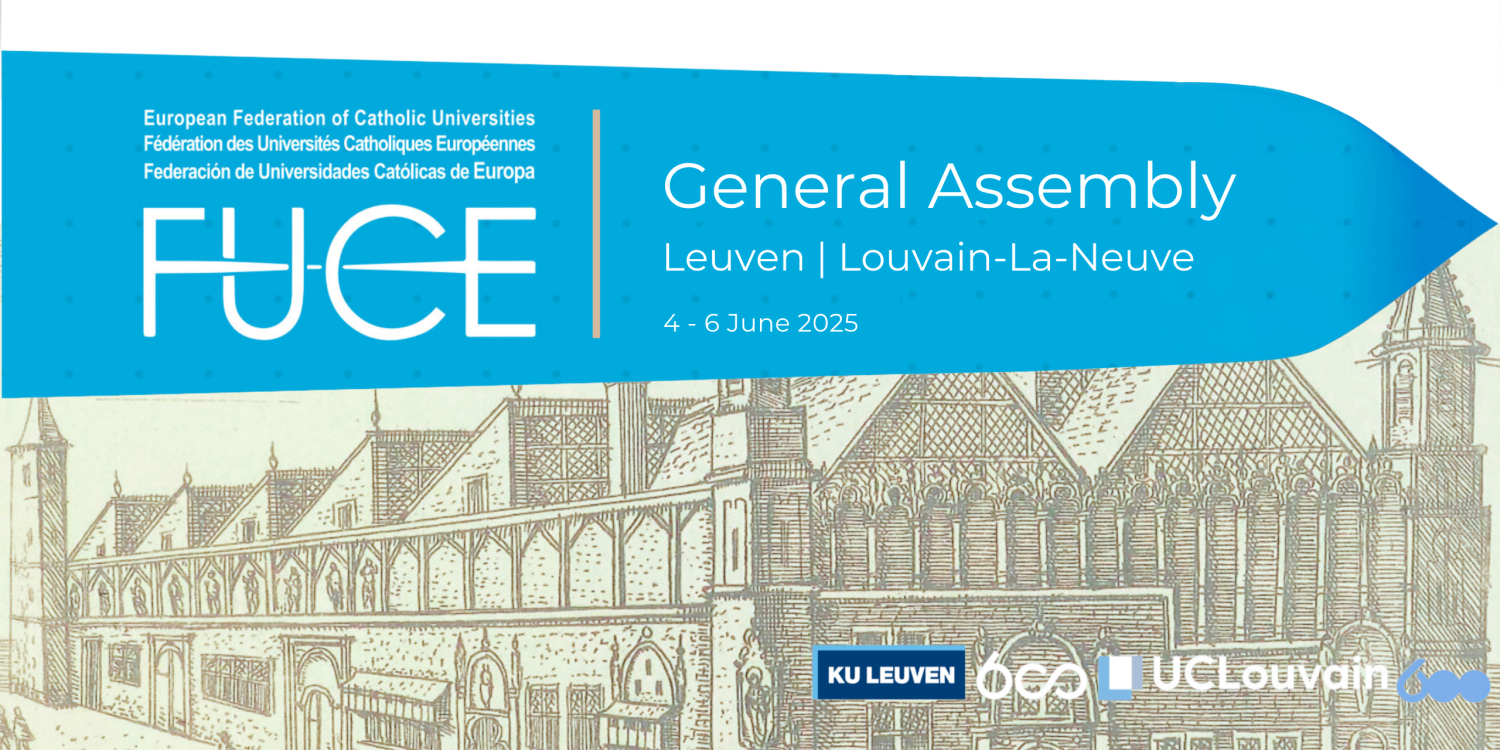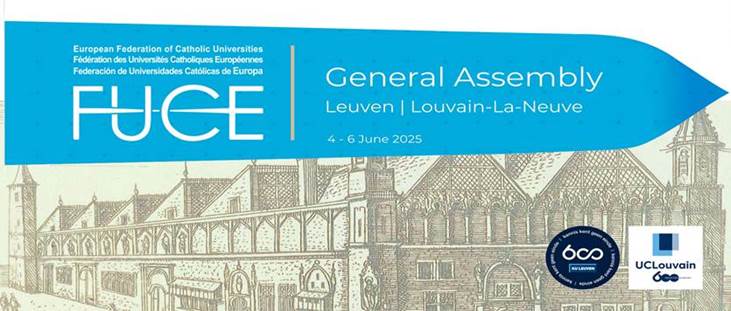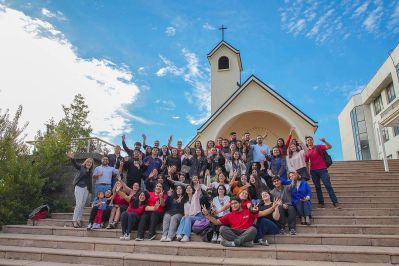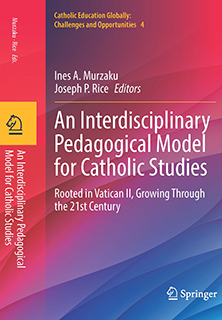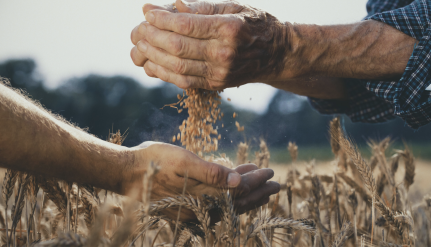Dear friends of the FUCE,
Dear Guests,
As already informed, the upcoming General Assembly of the FUCE will take place from Wednesday 4 till Friday 6 June 2025 and will be hosted by KU Leuven and UCLouvain in Leuven and in Louvain-la-Neuve (Belgium). We invite you to visit this website where you will find the useful information related to this event. Participation in the General Assembly, including meals, is free of charge. However, members are required to take care of their proper accommodation in one of the hotels selected by the organizer (see website) or elsewhere.
Please, book your accommodation as soon as possible. Registration via the registration form on the dedicated website is compulsory.
This year, KU Leuven and UCLouvain have, as comprehensive universities, proposed a theme that is not only theologically and philosophically relevant, but that is receiving a lot of attention in all groups of their universities, the topic of One Health. The thematic focus during the General Assembly will be entitled ‘The Spiritual Dimensions of a Holistic Approach to Health: The Possible Input of Catholic Universities’. We have asked one of the keynote speakers, Sandy TUBEUF, Professor in Health Economics at UCLouvain and Chair of Global Health of CircleU, to introduce this topic through a short article you can read below.
If you have any query, please contact the Secretary, Franck VIOLET, at the following addresses: FUCEGA2025@kuleuven or franck.violet@univ-catholyon.fr
We look forward to seeing you in Leuven and Louvain-la-Neuve in June!
With every good wish,
Rev. Prof. Michael MULLANEY
President of the FUCE
One Health: A Holistic Framework for Human, Animal, and Environmental Health
Sandy Tubeuf
Université catholique de Louvain
Institut de Recherche Santé Société (IRSS)
Institut de Recherche Economiques et Sociales (IRES)
sandy.tubeuf@uclouvain.be
The concept of "One Health" emphasizes the interconnectedness of human, animal, and environmental health. This holistic approach underscores that the well-being of each element is intrinsically linked and transcends the divisions we have created between disciplines, professions, and ecosystems. It makes one realize that human well-being depends on the well-being of the animals around us, the earth we walk on, the air we breathe, the trees that shade us, and the oceans connecting us to other continents.
This is not just an abstract theory. It's a reality that one lives every day, often without fully realizing it. Let us consider recent pandemics. The COVID-19 virus, for instance, crossed the species barrier, going from an animal to a human in a context where the exploitation of natural ecosystems had disturbed fragile balances. These crises are not mere accidents; they reflect our interdependence. This means that effectively managing an infectious disease of animal origin requires understanding the dynamics of the ecosystems where these pathogens originate. It also means that our choices in agricultural policies, antibiotic consumption, and environmental protection have direct impacts on both human and animal health.
Let us now consider the impact one's daily actions have on the ecosystem. Every time one buys food, drinks water, or takes medication, one is interacting with the ecosystem. These actions may seem insignificant, but they reflect a complex chain of relationships. When one opts for locally produced food, it reduces the ecological footprint of eating. When one limits antibiotic use, it contributes to the fight against antimicrobial resistance.
I was recently invited to write my ecobiography (https://pul.uclouvain.be/book/?GCOI=29303100082560), this led me to identify the moment I became aware of nature's fragility. It was during an especially hot summer when fires ravaged the forests near my hometown in Provence. I was about ten years old, and the pines, familiar silhouettes during my walks, turned into blackened carcasses. It was the first time I realized how vulnerable nature could be, and how much that fragility was linked to our actions.
The commitment of FUCE to consider the "One Health" approach invites everyone to reflect on their own experiences with nature and health. This approach offers a framework for thinking differently. It reminds one that health cannot be reduced to human medical interventions alone. It results from a fragile balance nurtured by our interactions with other living beings and our environment.
In my work as a health economist, the "One Health" approach prompts me to consider not only how environmental degradation exacerbates public health problems, such as respiratory diseases due to pollution, inequalities in water access, and the emergence of new zoonoses, but also how the production of human and animal healthcare can have indirect negative effects on public health and the environment.
The "One Health" approach invites us to view health from a broader perspective, where every preventive intervention, every effort to protect ecosystems, and every action to strengthen community resilience contributes to improving collective health
